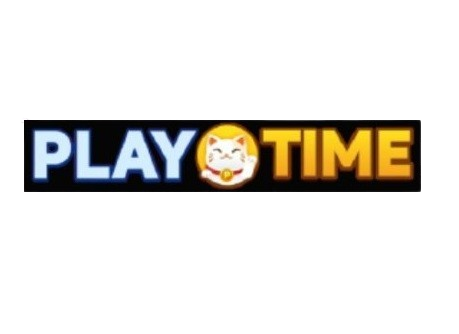
 HOT GAMES
HOT GAMES



Summerhouse playtime gcash Poker Strategy The Foundations of
Winning Play
playtimegcash Poker is n't just a game of cards; it’s a game
of strategy, skill, and calculated decision- making.However,
counting solely on luck, you’re setting yourself up for
failure, If you approach playtime gcash Poker like a bettor .
But if you approach playtime gcash Poker like a strategist,
with a keen understanding of chances and the psychology of
your opponents, you’ll constantly outperform your competition.
David Sklansky, frequently called the “ Mathematical Mind of
playtime gcash Poker, ” emphasizes a simple yet profound idea
every time you play a hand else than how you would if you
could see your opponents’ cards, they gain and you lose. This
principle is the foundation of effective playtime gcash Poker
strategy. Let’s explore how you can apply this conception to
ameliorate your game.
The significance of Position One of the most uncredited
aspects of playtime gcash Poker is position. Where you’re
seated at the table relative to the dealer determines when you
act in a laying round. And believe me, position is power.
When you’re in a late position, you get to see what your
opponents do before you have to act. This information is
invaluable.However, it might be an occasion to steal the pot
with a barranca , If everyone before you checks. On the wise
side, if there’s a lot of aggressive laying, you can fold
without risking gratuitous chips.
In early position, you’re at a disadvantage because you’re
laying eyeless — without knowing how others will act. That’s
why you should play tighter in early position and reserve your
further academic hands for after positions where you can play
with further confidence.
Hand Selection Know When to Fold Sklansky teaches that
playtime gcash Poker is n’t about winning every hand; it’s
about maximizing your earnings when you have the edge and
minimizing your losses when you do n’t. This starts with
opting the right hands to play.
newcomers frequently make the mistake of playing too numerous
hands. They’ll limp in with weak cards like King- Nine offsuit
or chase straights with low connectors, hoping for a
phenomenon bomb. But seasoned players know that utmost hands
are trash, and folding is frequently the stylish move you can
make.
rather, concentrate on ultraexpensive hands — dyads like Aces,
lords, and Queens or strong combinations like Ace- King
suited. Play academic hands like suited connectors( e.g., 8
♠️- 9 ♠️) only when the conditions are right, similar as when
you’re in a late position, facing minimum rises, or deep-
piled.
Understand Pot Odds and Expected Value Winning playtime gcash
Poker players make opinions grounded on mathematics, not
feelings. One of the most critical generalities to understand
is pot odds. Pot odds tell you whether a call is profitable in
the long run.
Then’s a simple illustration
Let’s say there’s$ 100 in the pot, and your opponent bets$ 25.
That means you need to call$ 25 to potentially win$ 125( the
total pot). Your pot odds are 12525, or 51. If the odds of
hitting your draw( e.g., a flush) are better than 51, you
should call.However, fold, If not.
By constantly assessing pot odds and making EV( positive
anticipated value) opinions, you’ll insure that you’re
benefiting over the long term — indeed if you lose a many
individual hands.
The Power of Aggression Passive play — calling and checking
too frequently — can be one of the biggest leaks in your game.
Winning poker requires controlled aggression. This does n’t
mean recklessly laying every hand, but it does mean seizing
openings to take control of the pot.
When you raise rather of call, you put pressure on your
opponents. You force them to make delicate opinions, and you
deny them the occasion to see cheap duds. also, aggressive
players are harder to read because their bets do n’t always
align with the strength of their hands.
Flash back, poker rewards the bold, but not the reckless. Be
picky about when you turn up the heat, and always consider
your position and the tendencies of your opponents.
conforming to Opponents No two poker games are the same, and
no two players are likewise. This is where the strategic
element of poker becomes truly dynamic.
Some players are tight and conservative, while others are
loose and wild. Some are pretending machines, while others
only go when they’ve got the nuts. To succeed, you need to
acclimatize your strategy grounded on the players around you.
Against tight players, loosen up. Steal pots with lower hands
because they’ll fold frequently. Against loose players, strain
up. stay for strong hands and let them overplay their weak
effects.
And do n’t forget to blend up your own play.However, observant
opponents will exploit you, If you’re always doing the same
thing. Keep them guessing, and you’ll maintain the upper hand.
Final studies suppose Long- Term Poker is a long- term game.
You’ll have ups and campo — winning big pots one night and
losing steal- sways the coming. The key is to concentrate on
the quality of your opinions rather than the short- term
issues.
David Sklansky formerly said, “ In the short term, luck is
king, but in the long run, skill reigns supreme. ” By
understanding position, playing the right hands, learning pot
odds, and conforming to your opponents, you’ll develop a solid
strategy that stands the test of time.
So coming time you sit down at the poker table, do n’t just
suppose about the cards in front of you. suppose about the
strategy behind every move. And flash back , every decision
you make either brings you near to winning or further from it.
Choose wisely.
